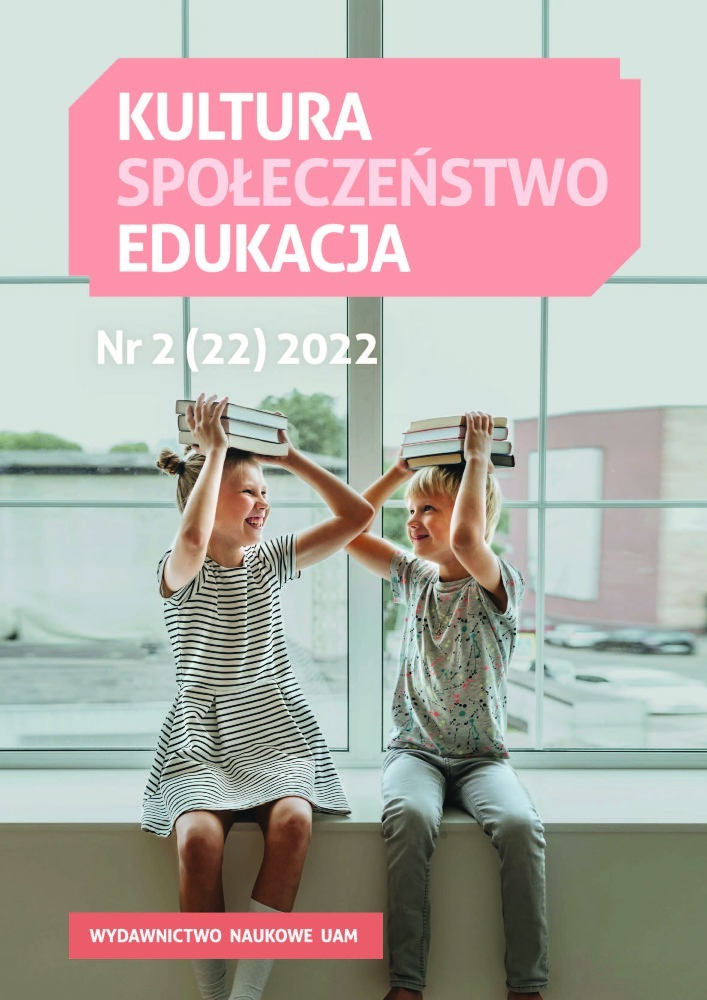Abstract
The contemporary message of some media associates broadly understood liberalism with the pejoratively interpreted slogan “do whatever you want”. Common understanding of liberalism as, very generally speaking, libertarian views, also tends to be juxtaposed with an almost anarchist view of the world. The purpose of this text is to reflect on how liberalism can be understood (and whether there is one way to define it) and how a liberal thought influences education. Can it shape education? If so, how? The liberal tradition is not only rich and diverse (it is impossible to talk about one liberalism with a capital “L”, or rather liberalisms of specific countries), but also has a significant impact on the way of thinking about the world in its various dimensions. The text provides an overview of the main tenets of liberalism along with their historical outline. The discussion about the main ideas of liberalism serves to organize a series of, sometimes contradictory, information about it. The background outlined in this way allows us to focus on the issue of liberalism in education, while posing a number of problematic, remaining open, questions about the essence of education or the role of school in the neoliberal perspective. The entanglement of science in ideologies is also shown, an example of which is mathematics, the subject defined in accordance with the adopted philosophical or even political perspective. The overview character of the text is intertwined with questions on the border of the philosophy of education and the history of political thought, which is a good introduction to further deepening the knowledge in both these areas.
Literaturhinweise
Beniuszys, P. (2011). Zakres wpływu idei liberalizmu na procesy polityczne w zmieniającej się rze- czywistości kulturowej i cywilizacyjnej współczesnego świata. Studia Gdańskie. Wizje i rzeczy- wistość, 8, 30-44.
Gray, J. (1994), Liberalizm (R. Dziubecka, tłum.). Wydawnictwo Znak.
Kopciewicz, L. (2010). Matematyka w ideologiach, ideologie w matematyce - badanie szkolnego funkcjonowania matematyki jako pola wytwarzania kultury. Forum Oświatowe, 1(42), 39-51.
Lynch, K. (2006). Neo-liberalism and marketisation: The implications for higher education. European educational research journal, 5(1), 1-17. https://doi.org/10.2304/eerj.2006.5.1.1 DOI: https://doi.org/10.2304/eerj.2006.5.1.1
Potulicka, E. (2011). Teoretyczne podstawy neoliberalizmu a jego praktyka. Przegląd Pedagogiczny, 1, 234-257.
Potulicka, E. (2012). Rynek w edukacji amerykańskiej jako teoria oraz ideologia. Teraźniejszość - Człowiek - Edukacja, 2(58), 23-36.
Potulicka, E. (2014). Rynkowy model wczesnej edukacji a stanowisko profesjonalistów - perspekty- wa globalna. Problemy Wczesnej Edukacji, 26(3), 7-24.
Rojek, M. (2018). Uczeń i nauczyciel w neoliberalnej teorii i praktyce edukacyjnej. Studia z Teorii Wychowania, 9(1(22)), 97-109.
Spector, C. (2012). Montesquieu's The Spirit of the Laws in the history of liberalism. W: R. Geenens, H. Rosenblatt (eds.), French Liberalism. From Montesquieu to the Present Day (s. 57-72). Cambridge University Press. https://doi.org/10.1017/CBO9781139084178.006 DOI: https://doi.org/10.1017/CBO9781139084178.006
Szwabowski, O. (2013). Krytyka "oficjalnej krytyki" neoliberalnych reform w szkolnictwie wyższym. Praktyka Teoretyczna, 7(1), 143-165. https://doi.org/10.14746/prt.2013.1.10 DOI: https://doi.org/10.14746/prt.2013.1.10
Lizenz
Copyright (c) 2022 Aleksandra Irena Karoń

Dieses Werk steht unter der Lizenz Creative Commons Namensnennung - Keine Bearbeitungen 4.0 International.

